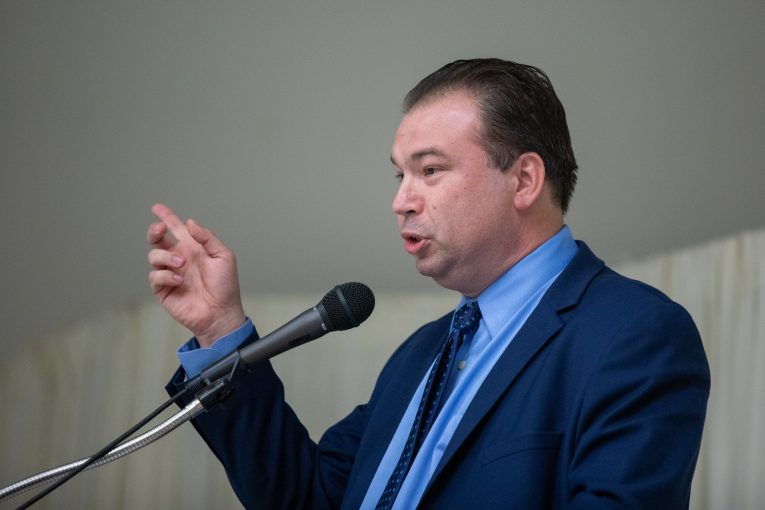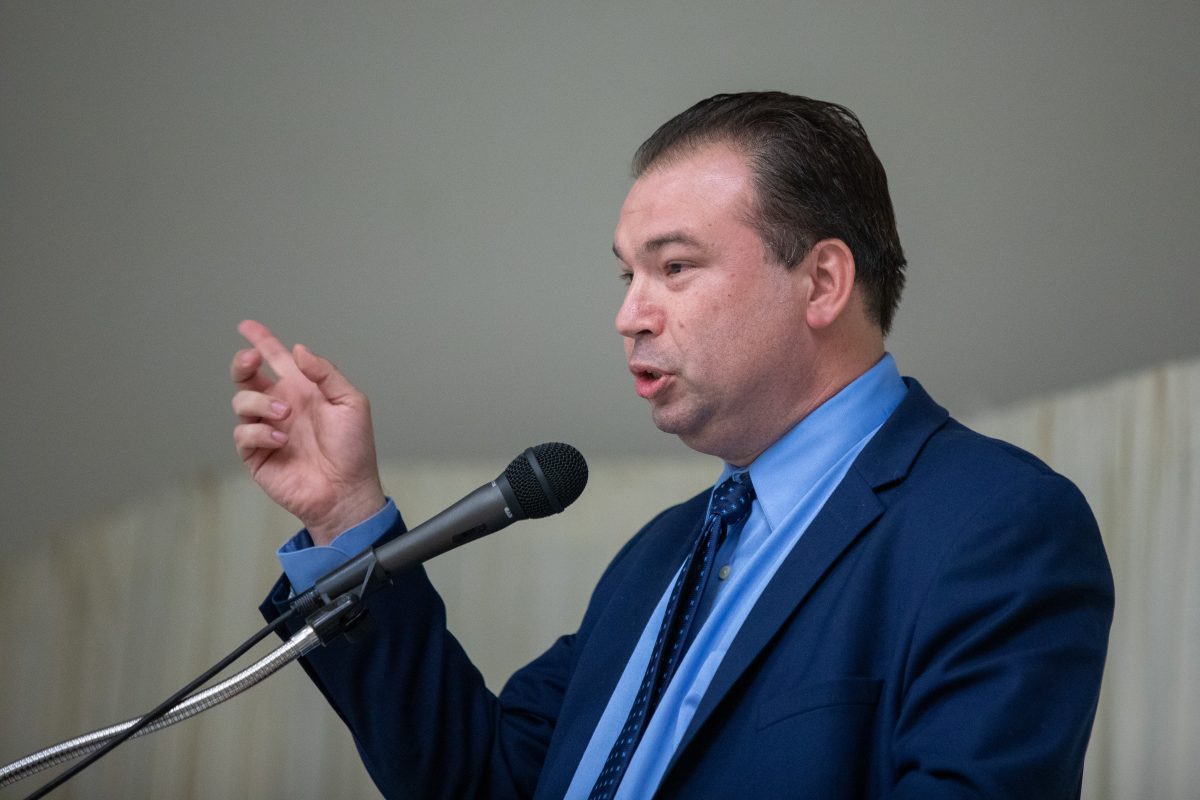

By Jeffrey Deskovic
“Looking back” will feature reprints of articles that Jeff previously wrote while a columnist at The Westchester Guardian, which encompass topics that are applicable here in CA as well as across the country and not simply applicable to NY.
A case currently up for consideration by the united states supreme court illustrates a very significant element commonly encountered when analyzing wrongful convictions, the discounting of potential alibi witness testimony in the face of often unreliable eyewitness accounts. In a 1996 Bronx, New York state case, People v. Richard Rosario, the defendant was convicted of a shooting homicide based upon photo array identification by two eyewitnesses.
In point of fact, the defendant was in the state of Florida on the date of the shooting. and, upon learning that he was being sought by police, returned to New York in an effort to set the record straight. according to a New York Times article on May 2, 2011, “he named more than a dozen people in Florida who he said would vouch for him.” however, the police never contacted the alibi  witnesses, prefer- ring instead to rely upon two so-called eyewitnesses. although his initial defense attorney secured funds through the court for an investigator to contact said alibi witnesses, “the lawyer never pursued the matter.”
witnesses, prefer- ring instead to rely upon two so-called eyewitnesses. although his initial defense attorney secured funds through the court for an investigator to contact said alibi witnesses, “the lawyer never pursued the matter.”
A subsequent defense attorney who took over for the first one mistakenly thought that the request for funds had been denied, and thus also never followed up. “Two alibi witnesses did appear at trial. The witnesses, a couple, said Mr. Rosario had been staying with them in Deltona, Fla., on the day of the murder. They remembered the day well, they said, because their first child was born a day later, on June 20, 1996.”
At a post conviction hearing in state court in 2004, Rosario produced seven witnesses who generally placed him in Florida around the time of the killing, two of whom specifically recalled seeing him on the day of the murder. At that same hearing, Rosario not only produced the additional witnesses but raised the issue of ineffective assistance of counsel. In turning down the motion, the judge stated that the attorneys’ failure to pursue the alibis was a misunderstanding or mistake that was not deliberate, and that on the whole the attorneys were effective.
Litigating the issue as a habeas corpus in Federal district court, Rosario was denied even though the judge ruled that the attorneys’ were, “objectively deficient for failing to adequately investigate petitioner’s alibi and present additional witnesses at trial.” The judge further said that there was, “a reasonable probability that the jury could have found petitioner not guilty of murder” had it heard the missing testimony. Instead, according to The Times, the judge said, “that did not matter, because New York courts were entitled to use an idiosyncratic standard in judging the effectiveness of counsel, one that considers lawyers’ performances over all rather than their isolated errors.” The 2Nd circuit court Of appeals affirmed the district court ruling by a 2 to 1 vote, and a re-argument motion likewise failed 6-4. The us Supreme Court is expected to decide whether it will hear the case next week.
Analysis
Rosario obviously received ineffective assistance of counsel and is very likely innocent. had his attorney’s pursued his alibi evidence, he likely would have been acquitted. For judges to acknowledge that fact and yet rule against him represents their elevation of procedural concerns over actual innocence, and an elevation of technicalities over basic fairness.
Beyond that, looking at overall performance of an attorney is not an accurate measure of effectiveness, instead looking at the merits of challenged omissions or commissions will give a clear picture. Not only is the New York standard of review inadequate but the federal rulings fell short of justice in that they applied state law that led to an unjust result rather than evaluating the claim in a sixth amendment context in which no state law deference should be accorded.
Alibi witnesses are most often perceived by police and prosecutors with skepticism and unfortunately all too frequently by finders of fact, juries and judges as well. The failure of defense attorneys to interview and present alibi witnesses suggests skepticism on their part as well. The rationale behind discounting alibi witnesses is that one’s friends and family are likely to lie in an effort to help a defendant avoid conviction.
Discounted alibi evidence is a common theme in many DNA proven wrongful convictions. Police and prosecutors should try to conclusively corroborate or refute the alibis, rather than ignore them. In some instances, perhaps the refusal to follow up and objectively evaluate the alibis is self serving; development of exculpatory evidence might hinder their prosecution. Instead of this approach, however, there should be a pursuit of the truth and nothing short of the truth.
With respect to defense counsel, the duty to investigate and employ all available alibi options is paramount and must be explored if one is to fulfill their ethical and professional responsibility to their defendant client.
“Jeffrey Deskovic, Esq, MA, is an internationally recognized wrongful conviction expert and founder of The Jeffrey Deskovic Foundation for Justice, which has freed 9 wrongfully convicted people and helped pass 3 laws aimed at preventing wrongful conviction. Jeff is an advisory board member of It Could Happen To You, which has chapters in CA, NY, and PA. He serves on the Global Advisory Council for Restorative Justice International, and is a sometimes co-host and co-producer of the show, “360 Degrees of Success.” Jeff was exonerated after 16 years in prison-from age 17-32- before DNA exonerated him and identified the actual perpetrator. A short documentary about his life is entitled “Conviction“, and episode 1 of his story in Virtual Reality is called, “Once Upon A Time In Peekskill“. Jeff has a Masters Degree from the John Jay College of Criminal Justice, with his thesis written on wrongful conviction causes and reforms needed to address them, and a law degree from the Elisabeth Haub School of Law at Pace University. Jeff is now a practicing attorney.
To sign up for our new newsletter – Everyday Injustice – https://tinyurl.com/yyultcf9
Support our work – to become a sustaining at $5 – $10- $25 per month hit the link:




